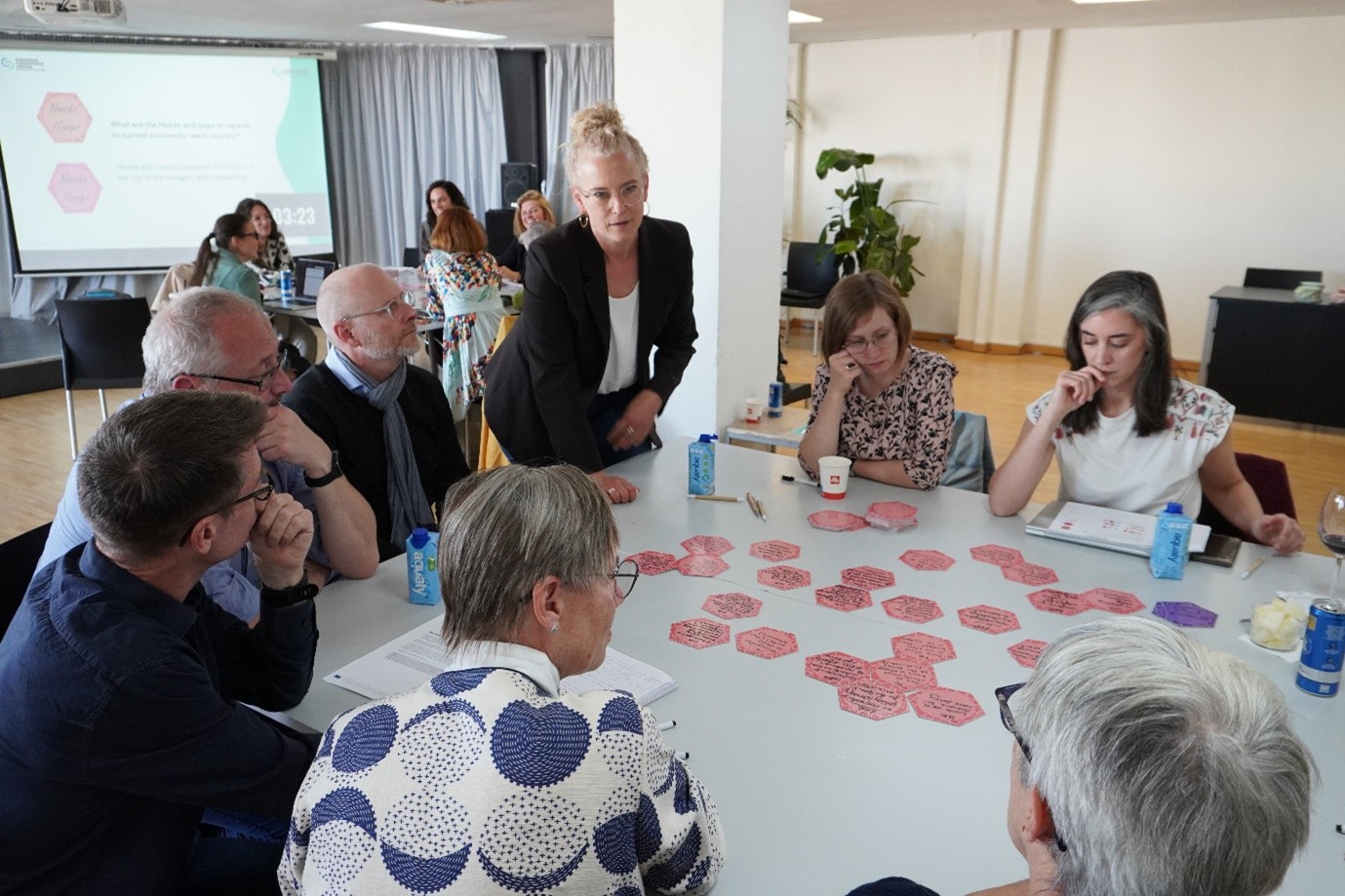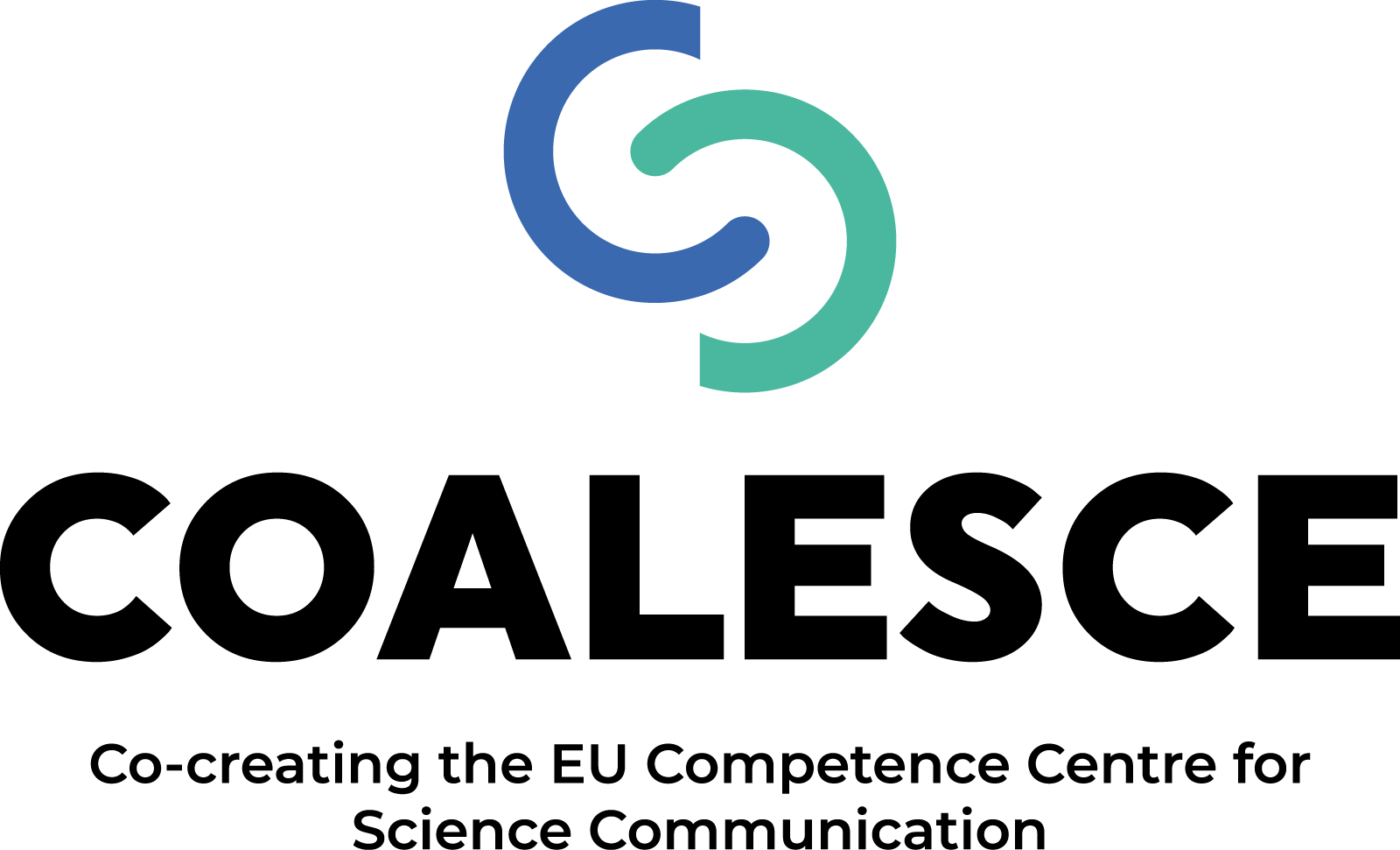Mutual learning exercise explores how policies can support science communication

What national initiatives and governance structures have helped to successfully strengthen science communication in European countries — and what lessons could be scaled up across borders? How do policies need to evolve at a national and European level to encourage and enable more effective, inclusive, and sustainable science communication?
These questions guided discussions among national representatives from nine countries across Europe during a Mutual Learning Exercise (MLE) in Science Communication in Research & Innovation (R&I), held in Madrid as part of the COALESCE project. Inspired by the European Commission’s Policy Support Facility – Mutual Learning Exercises (PSF-MLEs), this initiative brought together representatives of government departments and national funding bodies along with science communication research-practice professionals from the COALESCE Hubs network to exchange experiences and co-create actionable policy recommendations.
The day started with a welcome address from Izaskun Lacunza, Director of the Spanish Foundation for Science and Technology (FECYT), and Joana Magalhães, MLE Chair, followed by a round of introductions amongst participants. Angela Monasor from FECYT, also a partner in COALESCE, led the first session by presenting results from a survey conducted with participating countries to obtain a panoramic view of science communication within national governance frameworks.
Case studies of success stories from Germany, Ireland, Portugal, Estonia, Sweden, France, Spain and the UK were then presented to provide insights into initiatives that have supported science communication and explore what can be scaled from national level to European-wide. These covered areas such as capacity building, advisory infrastructure and policy support. The survey results revealed a significant gap across countries regarding policies in the integration of ethical principles in science communication. Addressing this, invited speaker Fabien Medvecky, Associate Director of Research at the Australian National Centre for the Public Awareness of Science (CPAS), delivered a thought-provoking presentation on why ethics should be considered an essential dimension of science communication policy and practice.
During the afternoon, the second session was led by Joana Magalhães from Science for Change (SFC), with a participatory exercise where researchers, practitioners and policymakers reflected on best practices and challenges in science communication policies and governance, working together to define a long-term vision for embedding science communication more deeply into R&I systems across Europe.
This meeting was the first thematic session, following a kick-off meeting of the MLE. A summary of the discussions held in Madrid will be shared with participants as input for the next topic meeting. Insights from the full MLE process will be captured in a policy report, including recommendations for European Research Area member states, aligned with the ERA Policy Agenda 2025-2027, to help embed science communication effectively within R&I national policies.
The attendees included: Annely Allik, Chair of Communication at Science Europe and Head of the Science Communication Department at the Estonian Research Council; Tony Whitney, Head of Public Engagement with Research in the Department of Business, Energy and Industrial Strategy in the UK; Rachel Iredale, Head of Public Engagement with Research at Research Ireland; Harald Franzen, Policy Officer for Science Communication at the Federal Ministry of Research, Technology and Space; Barbara Olfe-Krautlein, Science Communication Competence Centre, DLR Projekttrager, Germany; Inês Navalhas, Scientific Officer at Fundação para a Ciência e a Tecnologia (FCT) Anna Maria Fleetwood, Senior Advisor External Relations at the Swedish Research Council, Izaskun Lacunza, Director of the Spanish Foundation for Science and Technology, Spanish Ministry of Science, Innovation and Universities, and Luisa Klappauf, as an external observer from the INSPIRING ERA project.
The next MLE session will take place online in January, in which participants will unpack topics of citizen engagement, social perception and trust in science.


